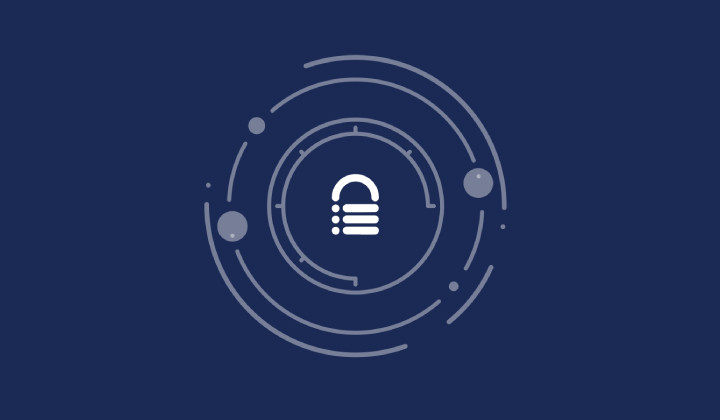5 Tips To Optimize Your WordPress Website For Google Search
Spending hours maintaining client sites?
WP Remote will streamline your WordPress maintenance process and save you at least 4 hours every week.

Optimizing your website for search helps your website communicate with Google, sends the correct signals about the type of content your site contains, the quality of the user experience, and most importantly if you do it correctly, will help you increase your website’s ranking in the search results for specific queries or keywords.
The higher your website ranks in search results, the greater the benefits, including an increase in organic traffic and an increase in conversions over time. About 32% of all traffic for a given search query goes to the number one result on Google, which is the highest-ranking website. According to Search Engine Journal, 49% of marketers say that organic search has the highest return on investment (ROI) of any marketing channel.
If you want your WordPress site to show up higher in Google’s search results, you need to optimize it according to what they say.
Here are five recommendations for optimizing your website for Google Search.
Start with a performance test
First, you must determine your website’s current performance. Without this information, you will be unable to determine where your website stands and what needs to be done to improve it.
Among the key performance indicators (KPIs) you should monitor are:
- Page speed and the rate at which your site loads on all devices.
- Technical SEO error audit and quality report overall.
- Google’s core web vitals website quality requirements.
These metrics of website quality and performance are arguably the most essential. Google has reported that they may not show your content in search results at all if it does not provide a good user experience and if it does not load quickly enough on all devices. Pages that load in less than a second rank higher, receive more organic search traffic, and have a lower bounce rate.
You can test the performance of your website using tools such as GT Metrix and Google’s PageSpeed Insights. Your website should ideally load in less than one second. The longer it takes for your website to load, the more likely it is that ranking opportunities will be lost to competitors with more optimized websites.
When evaluating the quality of your website, it is best to have a specialist conduct a thorough audit. Using premium paid tools, they will test the performance and technical optimization of your website and provide all the necessary insights to speed it up.
Once you have compiled a list of things that require repair, you can move on to the subsequent steps.
Site Checker and SEM RUSH are our preferred tools for detecting technical SEO errors on websites and tracking changes and updates on the website. They offer affordable plans and superior tools.
Optimize your website for speed
Once you’ve figured out how fast and well your website works, you have many ways to improve these things.
To speed up the loading time of your WordPress website, you can:
- Choose a fast and dependable WordPress hosting service, as the speed of your web server is one of the most important factors influencing the speed of your website. Ensure you have premium, performance-optimized website hosting.
- Utilize a caching plugin: Caching helps to accelerate your website by creating static versions of your pages and posts and delivering them to users without having to process each request from scratch. WP Rocket, WP-Optimize, and Perfmatters are helpful tools.
- Optimize your images. Images that are too large can significantly slow down a website. They can be optimized by reducing their file size without sacrificing quality. Utilize Imagify, Short Pixel, or comparable plugins.
- Employ a content delivery network (CDN)—A CDN is a global network of servers that delivers content to users based on their location. By using a Content Delivery Network (CDN), you can make sure that your website’s static files (like images, CSS, JavaScript, etc.) are sent to users from a server close to them, which speeds up the time it takes for pages to load. Cloudflare is well-known for its speed and security, and they provide free accounts to get started.
Airlift is also a solution that earns market space and it includes Caching, Image Optimization & CDN. - Keep your WordPress themes and plugins up to date. Tools and plugins that aren’t up to date can slow down your website and put it at risk.
- Choose a lightweight WordPress theme – Some WordPress themes are laden with features you’ll never use and are unnecessarily heavy, which can cause your website to load slowly. Look for a minimalist theme that is optimized for speed, responsiveness, and performance. The best ones we’ve evaluated are the Astra theme, Generate Press, and the Elementor Hello theme. If you are building a WordPress website with the Elementor builder, these are the fastest in the industry right now.
Having good hosting, optimizing your images, and using a paid caching plugin can make a big difference in how well your website works. Make sure to test your website’s speed often to make sure it’s still working well and to make any changes that are needed.
Google Core Web Vitals
The Core Web Vitals are a collection of metrics that measure the user experience of a website. These metrics became official Google Search ranking factors in May 2021. When you’re optimizing your website for Core Web Vitals, you should test it often to make sure you’ve made the right changes, as most websites require the services of a specialist in order to meet all essential core web vitals.
Make sure to optimize for all devices
You may be reading this on a desktop computer, but the likelihood is that the majority of your website’s visitors will be using mobile devices.
As of 2022, mobile traffic has already surpassed desktop traffic around the world. More than 59% of all internet traffic comes from mobile devices. Tablets account for the remaining 2% of internet traffic. Desktop devices account for over 38% of all internet traffic.
In addition, Google uses what is known as “mobile-first” indexing, which means that when determining your website’s ranking in search results, they primarily consider the mobile version of your site. Google will not consider your mobile site if it does not meet their quality standards, despite the fact that they have reverted slightly and begun to give desktop computers more relevance again, mobile optimization is crucial to the success of your website.
Optimizing for mobile devices is much harder than optimizing for desktop computers and laptops. However, you can quickly improve your website’s scores with the right hosting, performance optimization tools, and CDN network.
Maintain your website on a regular basis
After building a solid technical foundation for your website and starting to see results from your optimization efforts, it is important to keep those results by regularly checking your website and making sure everything is up to date.
To stay at the top of Google’s search results, you need to keep optimizing your site for Google search in the right way almost every day. It is not sufficient to make a single fix and assume that your website will run perfectly forever. In fact, we typically see a decrease of 5% to 10% in quality scores every week or two if you don’t stay on top of the work needed for your website to perform well.
An important part of the Maintenance is:
- Update WordPress Core, Themes & Plugins, set them up for automatic updates is even better!
- Ensure you always scan for security and you have a stable firewall in place
- Make sure a backup is always on hand!
- Create a staging environment and test your updates, beforehand
Conclusion
Your performance and technical optimization efforts should be a continuous component of your website’s maintenance routine. Ensure that you devote daily time or resources to these tasks to keep your website in pristine condition, and for that WPRemote will be able to help you automate the process and save a lot of money down the road.
Depending on the size and importance of your website, proper website optimization for Google search can cost anywhere from $50 to $1,500 per month. Unfortunately, businesses cannot survive anymore without a good online web presence in 2022.
When prospective customers search for the products or services you provide, you must have content on your website that also helps them. You can improve your website’s ranking in Google Search Results in a variety of ways, many of which do not require you to spend thousands of dollars a month or dozens of hours a week if you take the right steps and stay on top of your website maintenance.
Once the five tips outlined above have been addressed and you have a Google-compliant website, you are ready to take your website’s marketing to the next level.
Tags:
Share it:
You may also like

A Little to the Left: What Would You Do if Your Site Design is Microscopically Different?
We spend a lot of energy getting site design right. And with good reason! Because gone are the days where a bad-looking site with good content (and great intentions) will…

WP Remote’s Revamped Auto-Update Feature and Notifications
Managing updates on WordPress sites has always been crucial. Each plugin, theme, or core update requires attention to ensure compatibility and security. However, it’s traditionally been quite a task for…

Simplified Email Reporting: Essential Metrics, Straight to Your Inbox
Introduction At WP Remote, we understand the importance of effective communication between agencies and their clients. Keeping clients informed about the work performed on their websites is crucial for building…
How do you manage your websites?
Managing multiple WordPress websites can be time consuming and error-prone. WP Remote will save you hours every day while providing you complete peace of mind.

Managing everything yourself
But it’s too time-consuming, complicated and stops you from achieving your full potential. You don’t want to put your clients’ sites at risk with inefficient management.

Putting together multiple tools
But these tools don’t work together seamlessly and end up costing you a lot more time and money.


